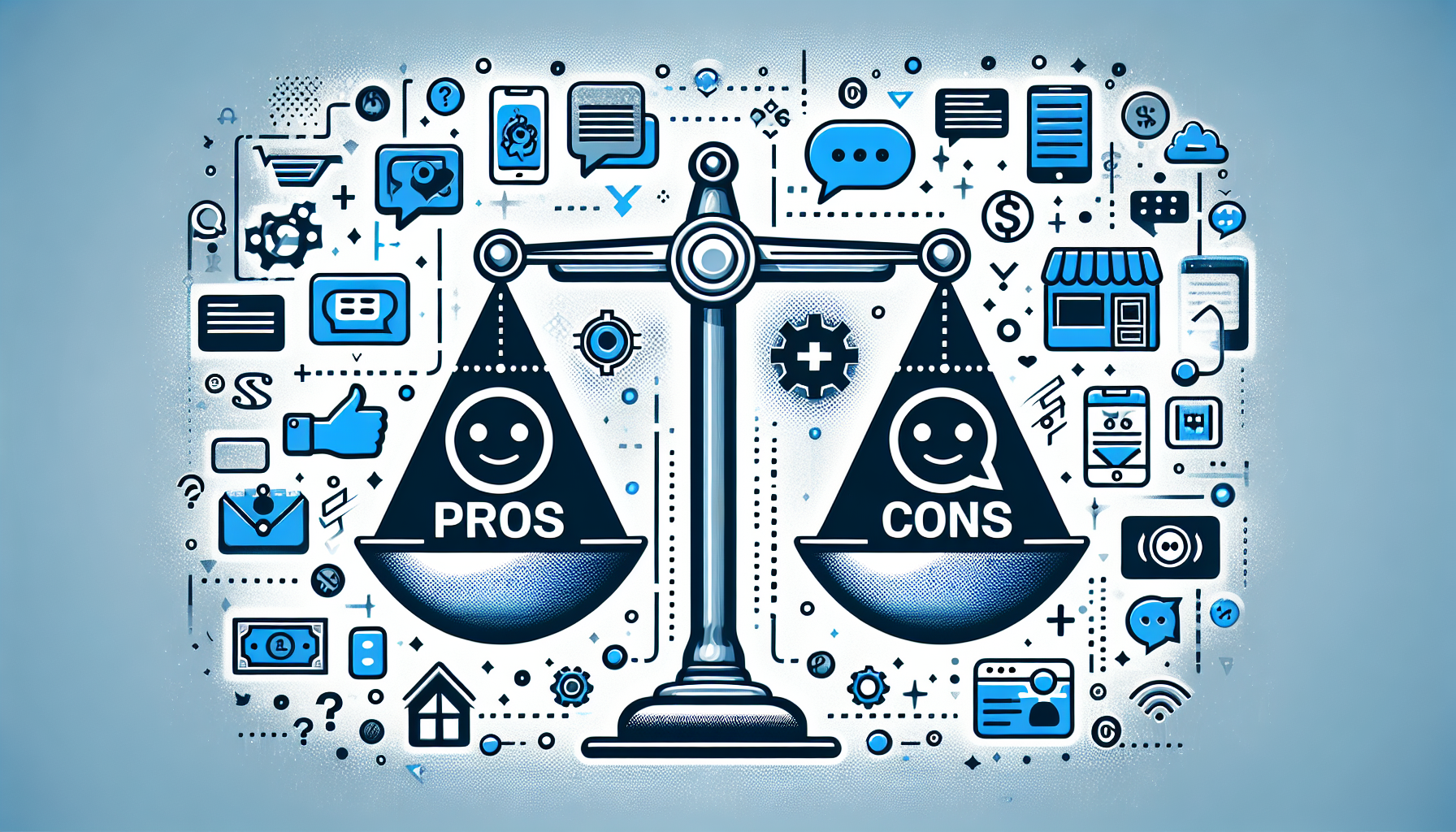Pros and Cons of ChatGPT for Small Business Marketing
Understanding ChatGPT for Marketing Opportunities
ChatGPT, an advanced language processing AI developed by OpenAI, offers small businesses unique opportunities to enhance their marketing strategies. Leveraging natural language processing, ChatGPT facilitates customer interactions and content creation, among other applications. While it comes with numerous advantages, it also presents challenges that small businesses must weigh. This article dives into both the pros and cons of implementing ChatGPT in small business marketing.
Pros of ChatGPT in Small Business Marketing
1. Enhanced Customer Engagement
ChatGPT can facilitate real-time communication with customers through chatbots on websites and social media platforms. By answering frequently asked questions and addressing inquiries promptly, businesses can boost user satisfaction and retention. This level of engagement can lead to increased customer loyalty, fostering a trusting relationship with consumers.
2. Cost-Effective Solutions
Integrating ChatGPT can significantly reduce customer service costs. Traditionally, employing staff for around-the-clock customer support can be expensive. ChatGPT functions 24/7, providing assistance without incurring the high expenses associated with human labor. Additionally, this savings can be reallocated to other essential marketing efforts.
3. Consistent Branding and Messaging
Using ChatGPT helps ensure that your business maintains a consistent voice across all customer touchpoints. By training the model with specific brand guidelines, businesses can ensure all communications align with their values and messaging. This consistency strengthens brand identity and fosters trust among consumers.
4. Content Creation Assistance
ChatGPT can streamline content creation by generating blog posts, social media updates, and marketing copy. Small businesses can benefit from quicker turnaround times and lower costs. By using AI to generate initial drafts, marketing teams can focus on strategy and refinement, enhancing the overall quality of their content.
5. Personalization at Scale
Leveraging ChatGPT allows businesses to personalize marketing messages effectively. By analyzing customer data and preferences, the AI can craft tailored messages, improving the chances of conversion. Customized communications can lead to better engagement rates, ultimately enhancing customer experience and loyalty.
6. Market Research Capabilities
With its ability to process vast amounts of data, ChatGPT can assist in market research by analyzing trends, customer feedback, and competitor strategies. Small businesses can gather insights to make data-driven marketing decisions, ensuring their strategies align with market demands.
7. Increased Efficiency in Campaign Management
Campaign management requires meticulous attention to detail and organization. ChatGPT can automate repetitive tasks, such as tracking responses to campaigns or summarizing feedback. This efficiency allows marketing teams to focus on strategic initiatives and creative aspects rather than administrative tasks.
8. Facilitates Lead Generation
ChatGPT can interact with potential customers on websites, capturing leads through engaging conversations. By qualifying prospects and guiding them through the sales funnel, the AI can significantly enhance lead generation efforts, ultimately providing a higher return on investment (ROI).
Cons of ChatGPT in Small Business Marketing
1. Lack of Human Touch
While ChatGPT can handle numerous inquiries efficiently, it may lack the nuanced understanding and empathy a human representative can provide. Certain customer interactions require a personal touch, especially in sensitive situations. A robotic response can sometimes frustrate customers, leading to negative experiences.
2. Limitations in Understanding Context
ChatGPT operates based on patterns and data it has been trained on, which can sometimes lead to misunderstandings of context or user intent. Misinterpretations can result in off-brand or inappropriate responses, potentially harming a business’s reputation.
3. Dependence on Technology
Relying heavily on ChatGPT may lead businesses to reduce human staff in customer support roles. Should the technology fail or malfunction, customers might find themselves unattended, leading to frustration and dissatisfaction. A balanced integration that combines AI with human oversight is critical.
4. Potential for Miscommunication
AI models like ChatGPT can generate content that may not always align perfectly with desired messaging. Without rigorous oversight, companies risk disseminating inaccurate or misleading information, which can adversely affect customer trust and brand integrity.
5. Learning Curve for Implementation
Integrating ChatGPT into existing marketing frameworks can present challenges, particularly for businesses unfamiliar with AI technology. Staff training and system adjustments may require a significant investment of time and resources before realizing the potential benefits of the AI.
6. Concerns Over Data Privacy
Using AI chatbots raises important questions about data privacy and security. Collecting customer information for personalized marketing may expose businesses to regulatory scrutiny. It’s essential for small businesses to implement robust privacy measures to protect customer data and comply with applicable laws.
7. Limited Creativity
While ChatGPT excels at generating text based on existing patterns, it lacks true creativity. Businesses seeking innovative marketing campaigns may find AI-generated content lacks the fresh perspective that a human creator could provide, potentially leading to repetitive or uninspired messaging.
8. Research Reliability and Sources
ChatGPT’s adaptability means it can generate information confidently but does not always guarantee accuracy. Businesses relying solely on ChatGPT for fact-checking should pair it with human review to ensure that all shared content aligns with factual information—upholding credibility in the marketplace.
Integrating ChatGPT Thoughtfully
For small businesses, the successful adoption of ChatGPT in marketing requires a thorough understanding of both its potential and limitations. By crafting a strategy that maximizes the strengths of AI while addressing its weaknesses, businesses can cultivate a smart, effective approach to engage their customers and elevate their marketing efforts. Always remember that blending advanced technology with human insight often results in the most comprehensive solution to marketing challenges.


